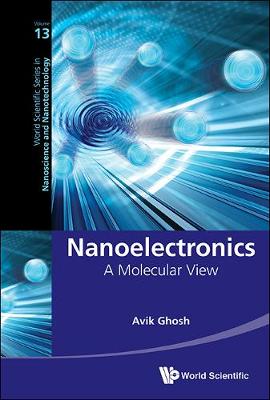World Scientific Series in Nanoscience and Nanotechnology
1 primary work
Book 13
'This is one of the best available graduate-level textbooks on electronic transport at the nanoscale. Its unique feature is providing a thorough and completely self-contained treatment of several theoretical formalisms for treating the transport problem. As such, the book is useful not only for the graduate students working in the field of nanoscale electrical transport, but also for the researchers who wish to expand their knowledge of various fundamental issues associated with this rapidly developing field. Of particular note are deep physical insights accompanying the rigorous mathematical derivations in each of the chapters, as well as the clear statement of all the approximations involved in a particular theoretical formalism. This winning combination makes the book very accessible to a reader with basic knowledge of quantum mechanics, solid state theory and thermodynamics/statistical mechanics. I give this book the highest recommendation.' [Read Full Review]Serfei A EgorovUniveristy of Virginia, USAThis book is aimed at senior undergraduates, graduate students and researchers interested in quantitative understanding and modeling of nanomaterial and device physics. With the rapid slow-down of semiconductor scaling that drove information technology for decades, there is a pressing need to understand and model electron flow at its fundamental molecular limits. The purpose of this book is to enable such a deconstruction needed to design the next generation memory, logic, sensor and communication elements. Through numerous case studies and topical examples relating to emerging technology, this book connects 'top down' classical device physics taught in electrical engineering classes with 'bottom up' quantum and many-body transport physics taught in physics and chemistry. The book assumes no more than a nodding acquaintance with quantum mechanics, in addition to knowledge of freshman level mathematics. Segments of this book are useful as a textbook for a course in nano-electronics.
